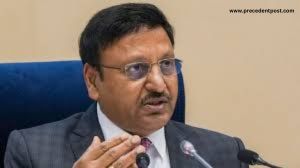New Delhi: The Union Budget 2025, set to be presented by Finance Minister Nirmala Sitharaman on February 1, 2025, is highly anticipated for its potential to introduce significant reforms and economic measures. As India’s economic landscape continues to evolve, the budget is expected to address various sectors and issues, aiming to boost growth, create jobs, and spur demand. This article explores the key expectations and focus areas of the Union Budget 2025.
Economic Growth and Job Creation
One of the primary focuses of the Union Budget 2025 is expected to be economic growth and job creation. With India’s GDP growth slowing to a two-year low of 5.4% in Q2, the budget is likely to prioritize reforms aimed at accelerating growth and creating employment opportunities1. The government is expected to unveil initiatives such as Employment-Linked Incentives and internship programs to support employment generation and skill development.
Tax Reforms and Simplification
Tax reforms are another crucial area of expectation in the Union Budget 2025. The budget is anticipated to introduce revised tax slabs aimed at reducing the burden on individuals, particularly the middle class. This move is expected to encourage greater consumer spending and investment, aligning with the vision of ‘Viksit Bharat’ by 20473. Additionally, the budget may focus on simplifying personal tax compliance and enhancing transparency in tax-related processes.
Infrastructure Development
Infrastructure development is a key sector expected to receive significant attention in the Union Budget 2025. The government has consistently increased budgetary allocations for infrastructure to reduce logistics costs and increase supply chain efficiencies. Capital expenditures are expected to grow, with a strong emphasis on robust infrastructure spending2. The budget may also launch various initiatives to expedite infrastructure development and provide guidance for ambitious asset monetization programs.
Support for Key Sectors
Several key sectors are expected to see increased funding and support in the Union Budget 2025. These sectors include infrastructure, healthcare, education, agriculture, and renewable energy. The budget is likely to prioritize these areas to drive economic growth and address socio-economic challenges6. For instance, the education sector is abuzz with expectations of transformative reforms, including enhancing digital infrastructure and addressing funding gaps.
Innovation and Sustainability
The Union Budget 2025 is anticipated to place a strong emphasis on innovation and sustainability. The budget is expected to earmark funds for research and development, aiming to attract both domestic and international investment in innovative technologies. Support for eco-friendly automotive technologies and a unified strategy to accelerate India’s transition towards a sustainable and self-reliant energy future are also expected.
Healthcare and Education
Healthcare and education are critical sectors that are likely to receive significant attention in the Union Budget 2025. The budget is expected to introduce measures to solidify India’s position as a global leader in healthcare innovation and excellence. In the education sector, stakeholders are hopeful that the budget will set the stage for a future-ready education system, with policies aligning with global educational trends while addressing unique challenges faced by India’s diverse education ecosystem.
Cryptocurrency and Digital Economy
The cryptocurrency sector is seeking favorable tax reforms in the Union Budget 2025. Industry leaders advocate for reduced TDS, loss offsetting, and lower tax rates to stimulate growth and compliance in the cryptocurrency market. Additionally, the budget is expected to support the digital economy, with measures aimed at enhancing public spending, reducing the fiscal gap, and spurring private investments.
Real Estate and Housing
The real estate sector anticipates critical reforms from the Union Budget 2025 that can accelerate growth and strengthen its contribution to India’s economic progress. Expectations include a rise in tax exemption limits for housing loans, granting ‘Industry’ status, and amendments in GST input tax credit regulations to boost affordability in the housing sector.
Conclusion
The Union Budget 2025 is poised to be a visionary roadmap for India’s economic development, with a focus on growth, job creation, and sustainability. By aligning tax reforms, infrastructure investments, and forward-thinking policies, the budget aims to drive India’s transition towards a resilient and equitable economy. As the country prepares for this significant financial plan, all eyes are on Finance Minister Nirmala Sitharaman’s budget speech, which will set the direction for India’s economic policies and government spending in the coming fiscal year.


